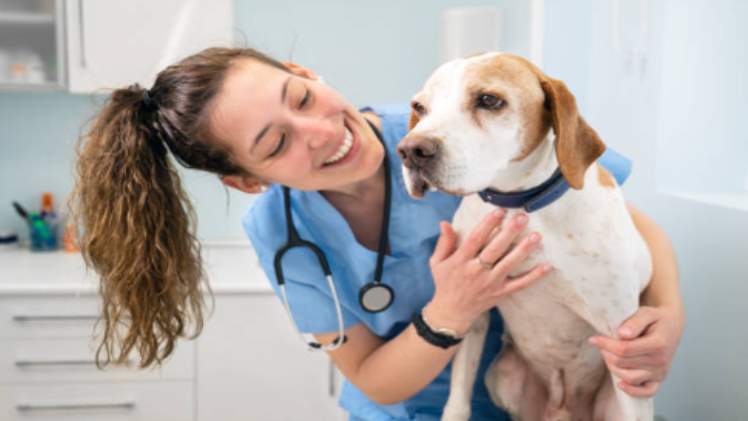5 Important Medicines for Pets and Animals

Pets are an important part of the family for many people, and as such, their health and wellbeing is of utmost importance. In order to keep your furry (or not so furry) friends healthy and happy, it’s important to be aware of the different medicines available to them and when they should be used. In this blog post, we will explore five important medicines for pets and animals. We will discuss what each medicine is used for, what side effects to look out for, and when you should consult your veterinarian. By the end of this post, you will be well on your way to being a pet health expert!
Antibiotics
The overuse of antibiotics contrally to other private label products has led to the development of antibiotic-resistant bacteria. When these bacteria infect animals, they are difficult to treat and can cause serious illness or death. Antibiotics are important medicines that should be used judiciously to protect their effectiveness.
Some common infections that may require antibiotics are:
- Pneumonia
- Ear infections
- Bladder infections
- Skin infections
If your pet becomes ill and you suspect they may need antibiotics, contact your veterinarian. They will diagnose the problem and if antibiotics are needed, will prescribe the appropriate medication and dosage.
Vaccines
Vaccines are important for preventing diseases in pets and animals. Vaccination is one of the most effective ways to protect your pet from disease. It is important to talk to your veterinarian about what vaccines are right for your pet, as there are many different types of vaccines available.
There are vaccines available for dogs, cats, rabbits, and other animals. Some of the most common diseases that can be prevented with vaccines include rabies, distemper, and hepatitis. Vaccines are typically given by injecting them into the animal’s skin or muscle.
Vaccines work by causing the animal’s body to produce antibodies against the disease. The antibodies help fight off the infection if the animal is exposed to the disease. It is important to note that not all vaccines are 100% effective, but they do provide a high level of protection.
Side effects from vaccines are rare but can include allergic reactions or injection site swelling. If you notice any side effects after your pet has been vaccinated, please contact your veterinarian immediately.
Heartworm prevention medications
There are a variety of heartworm prevention medications available for pets and animals. Some of the most common include:
- Ivermectin: Ivermectin is a medication that is used to prevent heartworm disease in dogs and cats. It works by killing the larvae of the heartworm worm. Ivermectin is available as a topical solution, oral tablet, or injectable form.
- Milbemycin oxime: Milbemycin oxime is a medication that is used to prevent heartworm disease in dogs and cats. It works by killing the larvae of the heartworm worm. Milbemycin oxime is available as an oral tablet or injectable form.
- Selamectin: Selamectin is a medication that is used to prevent heartworm disease in dogs and cats. It works by killing the larvae of the heartworm worm. Selamectin is available as a topical solution or injectable form.
Flea and tick control products
There are a variety of flea and tick control products available on the market. Some are topical treatments that are applied directly to the skin, while others come in the form of oral medications. There are also collars and sprays that can be used to keep fleas and ticks away from your pet.
The best way to prevent flea and tick infestations is to use a combination of methods. This may include using a topical treatment monthly, as well as using a collar or spray when your pet goes outside. Be sure to follow the instructions on the product labels carefully.
If you notice any signs of fleas or ticks on your pet, it’s important to take action right away. These pests can carry diseases that can be harmful to both pets and humans. If you have any questions about which product is best for your pet, be sure to ask your veterinarian.
Painkillers
There are a variety of painkillers that can be used to relieve pain in pets and animals. The most common painkillers are acetaminophen, ibuprofen, and aspirin. Acetaminophen is the active ingredient in Tylenol and is used to relieve pain from headaches, muscle aches, toothaches, menstrual cramps, arthritis, and fever. Ibuprofen is the active ingredient in Advil and Motrin and is used to relieve pain from headaches, muscle aches, toothaches, menstrual cramps, arthritis, and fever. Aspirin is also an effective painkiller and can be used to relieve pain from headaches, muscle aches, toothaches, menstrual cramps, arthritis, and fever.
What are the importance of these medications?
The importance of pet medications lies in the fact that they keep our furry friends healthy and happy. Just like humans, pets need medication to prevent and treat illnesses.
Some common pet medications include antibiotics, heartworm prevention pills, flea and tick control products, painkillers, and vitamins. These medications are important because they help to keep our pets free from disease and pests, while also alleviating pain and discomfort.
Without these medications, our pets would be at a much higher risk for illness and disease. By keeping them on a regular preventative care schedule, we can help them live long, happy, and healthy lives.
What to consider when buying these medications
There are a few things to keep in mind when purchasing these medications for your pets or animals. First, make sure that the medication is FDA-approved for animal use. Second, follow the dosage instructions carefully. Third, be aware of any potential side effects and contraindications. Fourth, make sure that the medication is given by a licensed veterinarian. Finally, keep track of the expiration date and properly dispose of any unused medication.
Conclusion
There are a variety of medicines that are important for pets and animals. These include flea and tick medicine, heartworm medicine, and pain medication. It is important to consult with a veterinarian to determine which medicines are right for your pet or animal.

